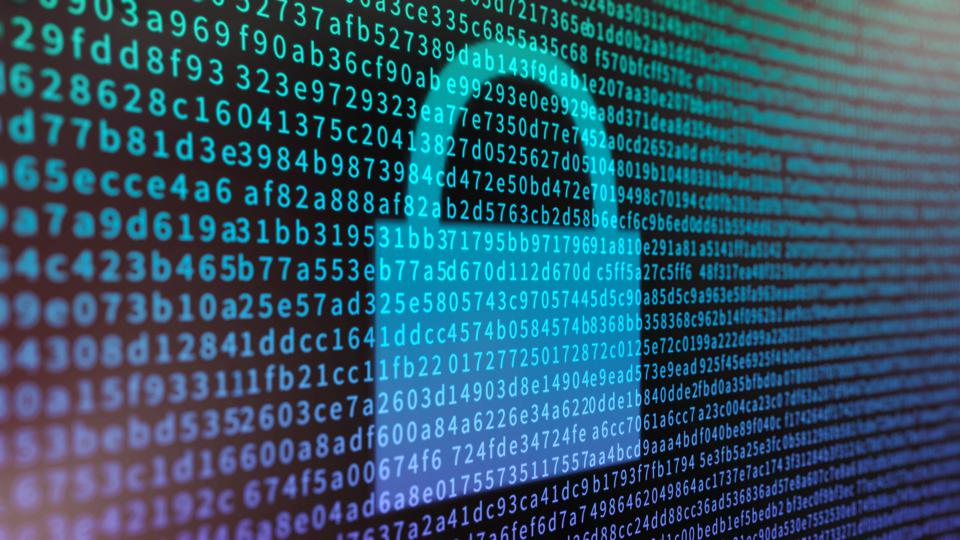Hacking means many things. From complex cyber attacks and specific software to online bluffs and tricks. Both are equally important if they work. Let's see a top of measures that our company thinks you can put into practice in your company or in your everyday life!
1. INSTALL AN ANTIVIRUS
The first and most relevant tip is to have an antivirus installed on your Laptop, PC or even on your Phone. There are many free options, but you can increase your security considerably with paid software. Such a license for an international name costs you under 200 lei per year, or you can find it in our domestic online stores at prices starting from only 24 lei/year. This will protect your device even when you click on a problematic link, or at least greatly reduce your chance of getting infected from such a link.
2. DO NOT CLICK JUST ANY LINK. ESPECIALLY AT WORK!
Many hackers get into your system by sending email. It's relatively simple: You don't know the e-mail address or the recipient, don't access the e-mail or click on the link in it!
At work it is more difficult to avoid some emails if you have a large volume of correspondence with other people, but for that you need to have a good anti-virus and a good anti-malware. Another trick to find out if a recipient is real, is the email address from which this email is sent. If you receive an email from Altex.ro, but the address is mail@altex.serviciialtex.ro or anything else of this kind, it is clear that the real .ro domain is not sending you this email. Another tip here is not to mix your work computer with your personal stuff and your personal websites (fashion, shopping, gaming, whatever...).
3. USE STRONG PASSWORDS
It is difficult to use complex passwords, but it is not impossible. Do you remember how in the 90s we memorized a lot of phone numbers? So it is possible!
If you have a Hotel and it is called Arica and your e-mail address is receptie@hotelarica.ro, do not put the password hotelarica2022 in this e-mail! For two reasons. First, it is easy to guess. Second, a hacking software can guess any password, but that's in a few hours, or in a few centuries. Seriously! Depending on the complexity of the characters, these softwares react differently. So a password like “eEf6^8#bhd@” would be perfect, but if you want to remember it, choose something like “Cont123Hotel$$”. It's not very hard to remember at all, but it's almost impossible for hackers to crack and definitely impossible to guess.
4. SOCIAL ENGINEERING
Another type of hacking has a more human and personal factor. For example, The Accident Method it's social hacking. Someone calls you, pretends to be someone else, tricks you into giving them money. Analyze well when someone approaches you by e-mail to ask for personal data about you or the company, and never give too personal information over the phone! A bit of instinct of paranoia, would help!
5. UNLICENSED SOFTWARE
Although some software is expensive, installing it without a license can cost you more. Many such programs downloaded from untrusted sources can come bundled with viruses. Some programs are "crafted" not to ask for a license, but to be somehow better-optimized for certain functions, but this unauthorized modification of the software itself can leave holes in security through which a skilled hacker can slip. Windows with a lifetime license for 1 device can cost you under 100 lei. Without a license it will almost certainly be a windows that will give errors, that will not connect properly and that will not be defended by updates to future ingenious methods used by hackers.
6. NO ONLINE SHOPPING FROM NO-NAME SITES
According to the electronic stock exchange Nasdaq, by the year 2040, 95% of shopping is expected to be done online. It's a big risk for those not used to this environment.
There are many offers that are fake on the internet and you can usually tell by the extremely low price. At the bottom of a website, there should be a page called Terms and Conditions. Here you need to find information about the name of the LLC behind the business. Did you find? Do not stop! Also search on Google. See if it appears as a real company and then see some reviews. You can't strictly rely on some reviews, but many confirm the existence of a real sales process. You can say that you only lose 50 lei and you don't care. You will also lose your amount and other amounts on the card and the card itself and your email address and all your identity! Remember the credit by ID mania? credit-cu-buletinul?
7. DON'T KEEP YOUR NFC TURNED ON
We return to the hacking sphere and mention this possibility as well. Many wonder what the world would have been like if Nikola Tesla was rich. He was the first to think of the possibility of wireless energy transfer, and he was not mistaken!
In Romania, this fashion is still not worn much, but it exists. On the bus, in line for beer at the festival...someone can walk around with a portable and modified POS. It can steal money from the card registered in your phone when you have this connection on. Turn it off if you're not at the store! It's more inconvenient to start it every time, but at the same time, you're also locking your car when you're just pulling into the gas station to pay for gas, right? It also turns off bluetooth and turns off mobile data, if we're still talking about Efficiency. Mostly because it will keep your phone battery in better working condition.
8. NO WEIRD PLUGINS ON WEBSITES
Turning our face to novice web developers building their own projects, we also mention this. As a rule, customers ask for various website functions that only a programmer can do for a lot of money or that a plugin does for free.
Use plugins as official as possible and recommended-officially by big names. The more reviews the better. If not, they may contain viruses as well, or they may suddenly crash, taking your site down with them. Also, don't forget regular Updates to these plugins!
9. NO YAHOO MAIL
Another classic tip, from 2013 onwards: No Yahoo mail! You don't want yourname@yourdomain.com? Okay! Gmail works too! But not Yahoo! It has been far too affected by hacker attacks, and having a company email on Yahoo is, from our point of view, a supreme audacity! An interesting tool is the website haveibeenpwned.com. You enter your email address and find out if it's been compromised.
10. USE TWO EMAILS
Here's a revolutionary idea that many of us wish we had known about way back! Are you tired of someone from the company writing to you on e-mail and not finding this message among dozens of received spam? Create two emails!
One should be the "serious" one that you give to family, friends, business partners and solid and credible businesses such as Facebook, Whatsapp, eMag, Altex... The other should be the "scandal" e-mail that you enter it on newly discovered sites, semi-obscure clothing sites (which you should definitely check out), gaming sites, and more. By the way, for Spam you know you can unsubscribe at the bottom of such emails, right? Or, maybe you like to be informed about offers day by day. Everyone with their own style! The idea is not to be disturbed without your consent!
These are "in short" some security and safety tips online, but also offline. Write us on our Facebook page if you also apply these tips in your everyday life!




